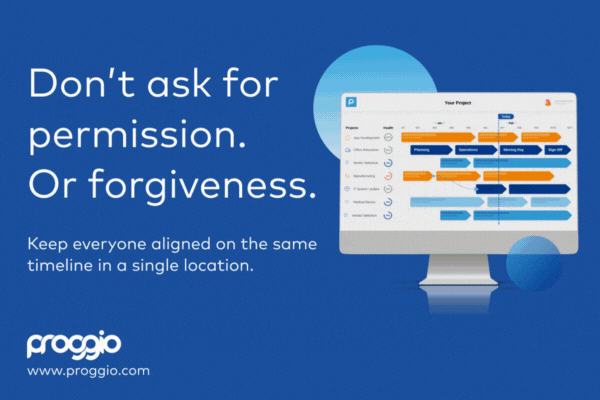IT specialists and a personal brand or personal nonsense?
Why would a project manager and a business analyst need to create their personal brand?
Recently we’ve discussed the topic of a personal brand with the team and they asked me an interesting question: “Why do I (the questioner), a regular analyst or a hired project manager, need a personal brand? What will it give to me? More money? More interesting projects? Expand my network?” The short answer is “yes, all this and much more”.
And here’s another question that people ask me a lot: “How do some people get the best job offers (although they are not looking for them), but I have already sent a dozen resumes and no one even has called me back?”
What is a personal brand and what value it gives to us when we consciously come to the need for building it.

For some people, a personal brand is a way to achieve their professional goals: to move up the career ladder, find employees for a team, attract clients or investors. For others, it is an opportunity to gain recognition, a kind of self-expression.
Competition in the IT industry is still strong and while demand is rising, many of the top positions are closed before it comes to posting a job. Moreover, sometimes positions are specially opened for a specific specialist. And this happens because these people are known and talked about, they are recommended.
Before we figure out what a personal brand is, let’s discuss the basic concepts.
A brand is a word that is associated with a certain product or service in the minds of a certain group representatives.
For example, FAGMA (Facebook, Amazon, Google, Microsoft, Apple) is the top 5 corporations that launched the global digital transformation. Each of them is a brand. Together they are a brand. But only for a certain, albeit very large, group.
Nutella, BMW, Victoria’s Secret – all of these words say something to certain groups.
By the way, did you know that the word “brand” derived from the Old Scandinavian verb “to burn out” and used to mean “to mark livestock”? Of course, over time, branding changed: at the beginning, artisans began to tag their work. Then it turned into a manufacturer’s race when everyone tried and still tries to prove that their brand was/is better than the others, and that the “burnt” name alone speaks for itself.
Does your name mean something? Again, in your particular group. And how big is this group? If we start talking about a personal brand, we can give the following definitions:
- A personal brand is what others say about you when you are not around.
- A personal brand is an impression you create through your words, actions and confirm with results.
- A personal brand is the correspondence between your inner self-image (you should have one, believe me) and how others perceive you.
Therefore, a professional personal brand can be described as a value proposition that you can boldly and confidently offer to the market. After all, a Youtube channel, an Instagram account with two hundred thousand followers, 5000 subscribers on Facebook can’t yet speak of a professional personal brand. As my colleague, the author of the book “Negotiations with Dolphins” – Maxim Romenskiy, says:
The goals of a personal brand are different.
There are people who need a brand to create a fan club. These people feed on attention. There are people who need a brand to transform it into money / power / influence / promotion opportunities.
It is important to understand that your position will not make people think of you when they open an interesting vacancy. If you want to stand out, you need to share what makes you memorable – “burns” you into the memory of others. These differentiating factors may include your skills, education as well as interesting companies you have worked for, but they can also be related to your personal life, hobbies, passions, charities.
[widget id=”custom_html-68″]
Try to name your strengths right now.
And it’s not just a common question during interviews. It is what you should know about yourself for sure.
Who am I today and how am I perceived? What are the facts and results that show me as a good specialist? What distinguishes me from other people doing the same job? What kind of specialist do I want to be tomorrow? How do I get there?
Step by step, asking ourselves these questions and conducting an «as is» -> «to be» analysis, we come to that unique image of ourselves, which will be our personal professional brand. This image will make us more competitive, more successful and possibly happier.
At the same time, you need to remember that a personal brand is constant self-improvement. It’s a deep understanding of “who I am today” and how I can fully reveal the potential for my tomorrow-self. You are changing as well as the world around you – therefore your “proposal” must be changing too.
How to build a personal brand?
- Understand what unique skills and a value proposition you have or might have.
- Create an offline image and online presence that showcase your best qualities.
- Become an active member of a professional community: writing articles, participating in conferences, volunteer programs.
- Working with a mentor.
- Become a mentor to others.
- Create a personal development plan as well as a development plan for your brand.
How does a personal brand work?
You will get to the next level in the process of creating a brand. The very desire to build it and the following steps will give you tangible and unexpected results. And then your reputation will start working for you.
Some examples of the situations where a personal brand helped me.
Situation 1
Several years ago, I started an IT conference in Dnipro – RUN IT. The first conference attracted 450+ participants with a zero-advertising budget. A personal brand, a strong reputation, wide networking, the co-founder’s support and the local IT community made this possible.
Situation 2
When I moved to work for another company as a Delivery Manager, my task was to start a project for a new client – a Swiss bank. At the same time, it was necessary to hire a team of 50 people in a short time. For the small Dnipro market, this is not an easy task. Having a reputation of a “reasonable” manager (as others say), I managed to close 50 vacancies within the specified period. About 30% of the team came from my personal contacts.

So, what can the personal brand development give to us?
Self-confidence, awareness, openness to the world and a calm attitude to negative events, adaptability and understanding that I can do this. After all, the chain isn’t only weak due to its weakest link, but it’s also strong thanks to its strongest one. Thus, we can and should know our strengths to be able to rely on them.





